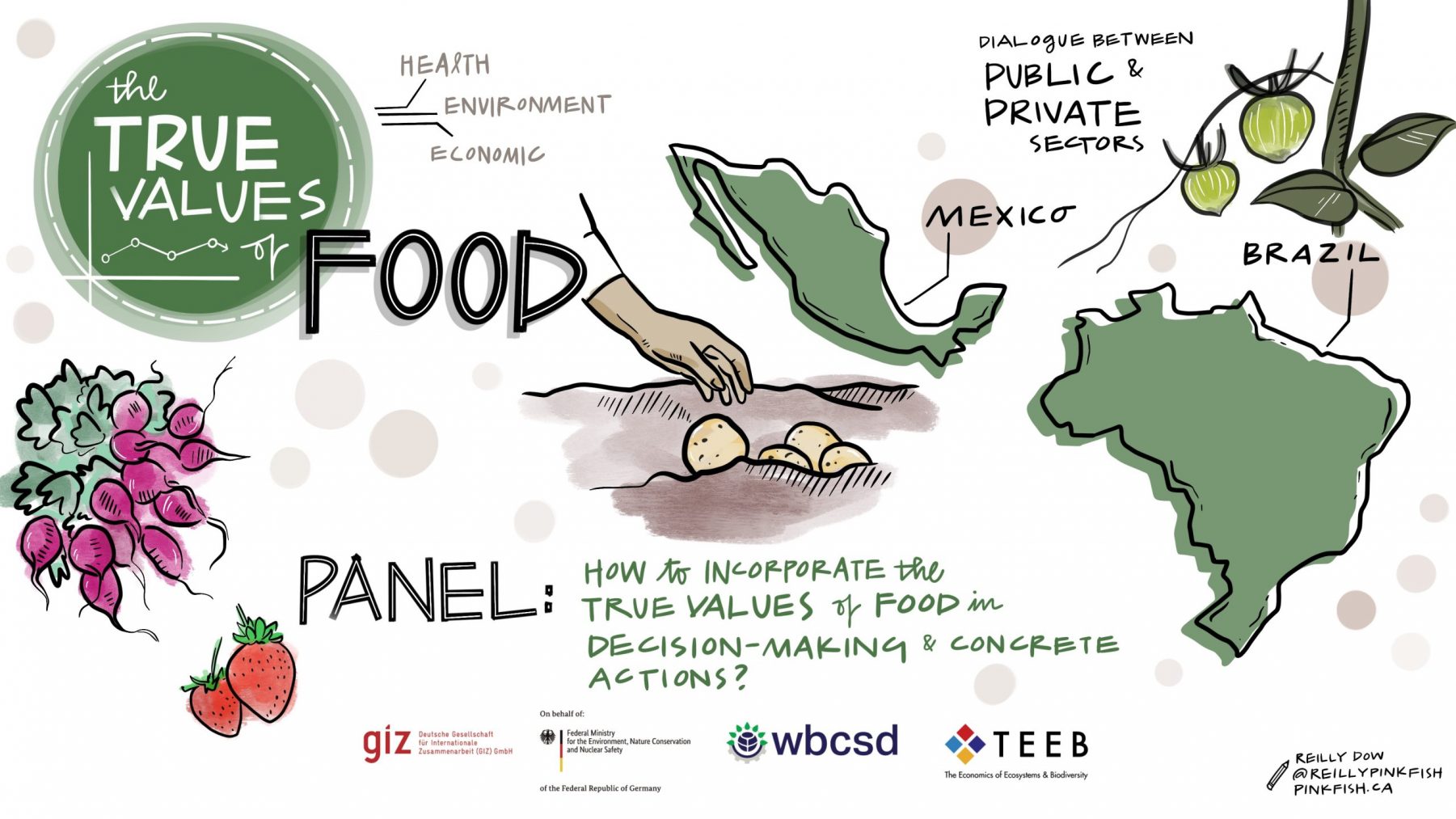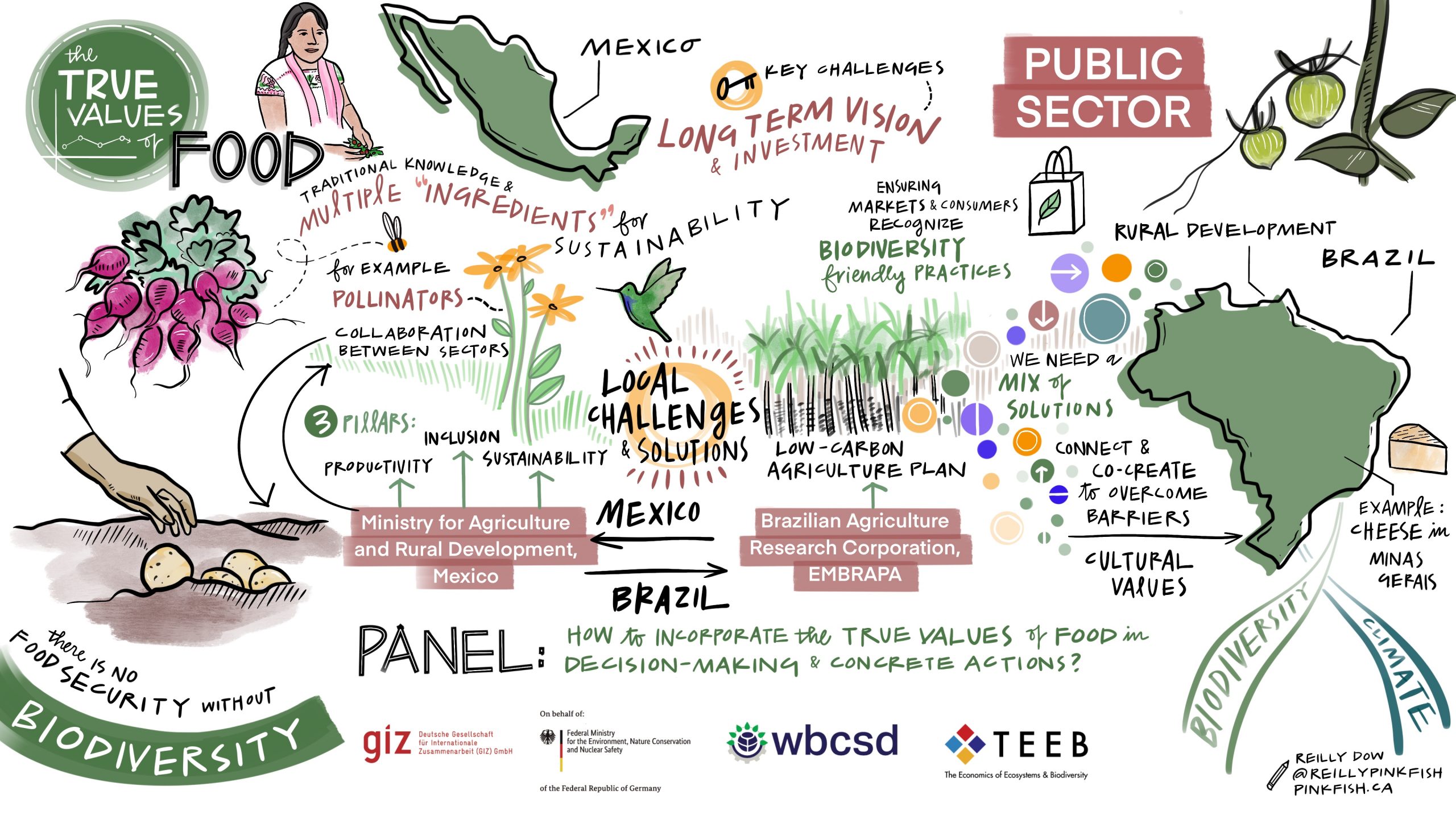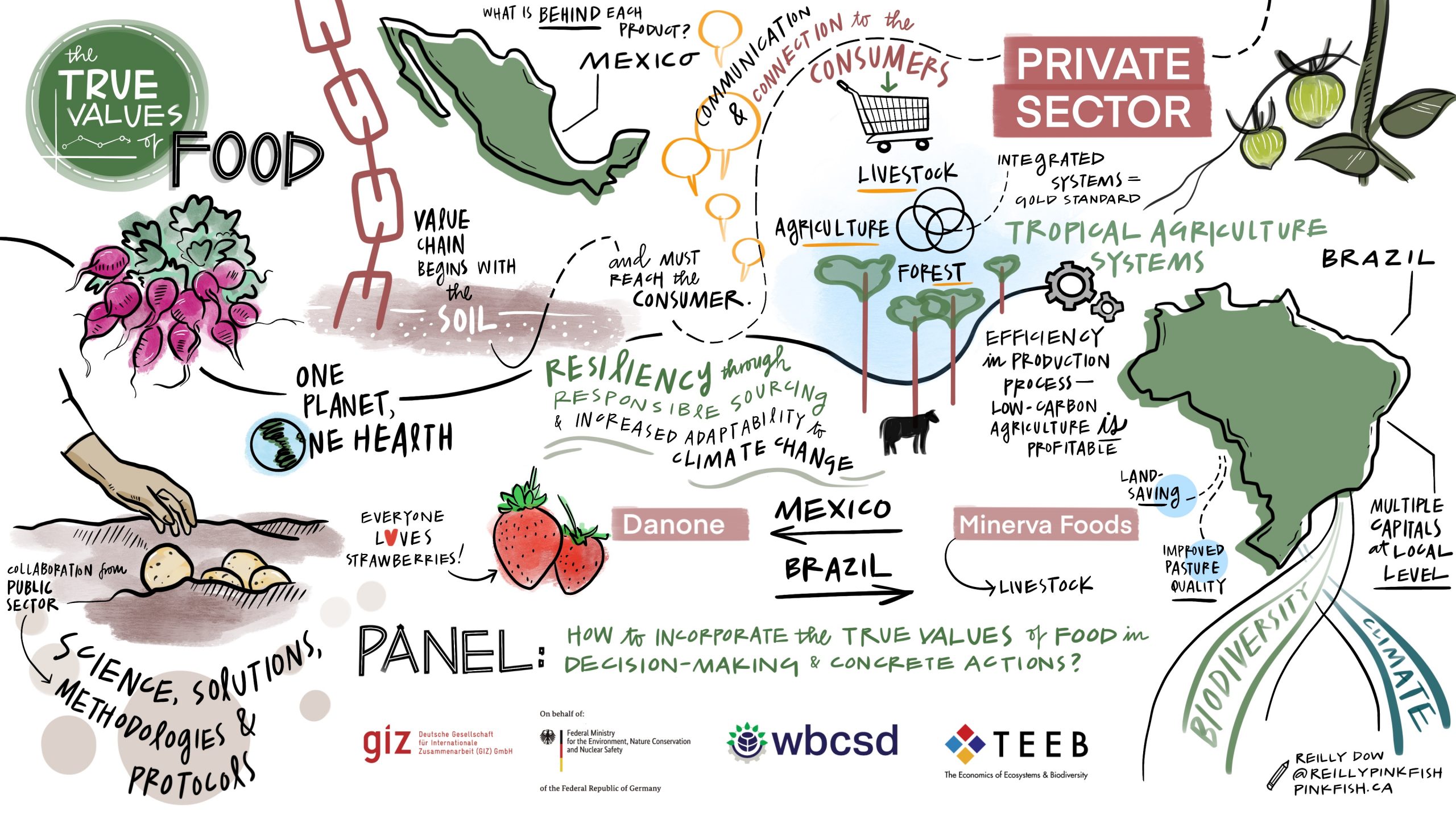In our everyday lives we do our food shopping taking into account one important factor: the price. But does this price really reflect what practices were used to produce that food, or how many tons of greenhouse gases were emitted? The value of food goes far beyond purely economic aspects; there are many social and environmental implications that depend directly on production practices. Unaware practices can have several negative effects on nature such as the emission of greenhouse gases or soil and aquifer contamination with agrochemicals. However, good agricultural practices can have significant positive impacts on natural, social and economic capital.
The event “The True Value of Food” was organised within the IUCN World Conservation Congress by the project Integration of Biodiversity in Agriculture in Mexico (IKI-IBA), together with the World Business Council for Sustainable Development (WBCSD) and UN Environment. This virtual panel discussed those intangible aspects of food production that have an important impact and value, and are not often taken into account. Through an interactive game about the case of a brewery, the audience was invited to evaluate the environmental and social consequences of various decisions in order to raise awareness about their value.

The event was complemented with a panel discussion with actors from both the private and public sectors of Mexico and Brazil on the integration of biodiversity in agriculture. The dialogue was quite enriching since two different perceptions regarding the management of agriculture and their positive and innovative projects or experiences were presented. The need to take advantage of these differences to cooperate between the public and private sectors was emphasised, with each individual participating from their area of expertise. This event demonstrated the importance of support between different sectors to achieve a greater environmental, social and economic impact through the improvement of agricultural practices.

More information in this link.



